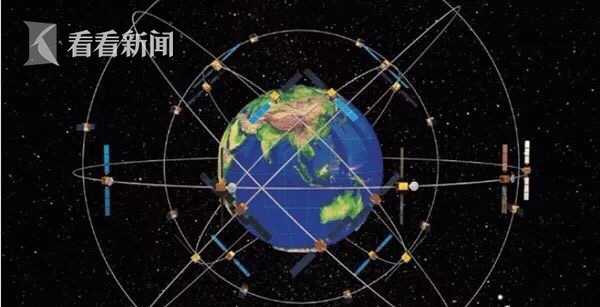
The five functional modules of the operating system are processor management, memory management, device management, file management and operation management. Processor management The most basic function of processor management is to process interrupt events. After configuring the operating system, various events can be processed.
The functions of the computer operating system include: processor management, memory management, device management, file management, job management and other functional modules. Processor management. The most basic function of processor management is to handle interrupt events. The processor can only detect interrupt events and generate interrupts and cannot process them.
Storage management is divided into several functions: storage allocation, storage sharing, storage protection, and storage expansion.Equipment management has the following functions: equipment allocation, equipment transmission control, and equipment independence. File management: file storage space management, directory management, file operation management, file protection.
The operating system should usually include the following five functional modules: (1) Processor management. When multiple programs are running at the same time, solve the problem of processor (cpu) time allocation. ( 2) Operation management. The program to complete an independent task and its required data constitute a task.
The function of the operating system is mainly reflected in the management of computer resources - microprocessors, memory, external devices, files and tasks. The operating system sets this management function into the corresponding program management module, and each management module is responsible for a certain function.That is, the five functions of the operating system.
The operating system has five functions: processor management: mainly controls and manages the work of the CPU. Storage management: mainly carry out memory allocation and management device management: mainly manage basic input and output device file management: responsible for the organization, storage, operation and protection of computer files, etc.

There are the following types of management systems: the management system of the finished product set. This kind of system is a stereotyped management system, which makes a small number of functional adjustments to the software through the parameter settings of the software.
Transaction Processing System (TPS): Operators and supervisors are used to input transactions, events, sort, list, merge updates, output detailed reports, lists and summaries, etc. Management Information System (MIS): Middle managers are used to input general transaction data and simple models to process routine reports.
Adgecal management system Academic management system is one of the most core management systems of the school, which is responsible for arranging and managing the school's teaching activities. It includes curriculum setting, teaching plan, teacher arrangement, examination management and other contents.
VMware vSphere: It is a virtualization management platform that can be used to manage virtual machines, storage and networks, etc. Nagios: It is an open source network monitoring system that can be used to monitor network devices, servers and applications, etc.
Financial subsystem: providing the function of financial management information; Decision support subsystem: make the logistics information system reach a higher level.
ERP management system brand Youyou, Jindie International Software, Wave Software, Dingjie Software, Zhenghang Software. Use friends.
1. System management refers to the information technology system that manages enterprises, and file management is one of the five major functions of the operating system.First, network management refers to the centralized management of resources on the network by network administrators through network management programs.
2. System Management regards organizational components as interrelated and interdependent systems, so it advocates applying the system concept to the management concept.
3. System management refers to the process of maintaining, managing and monitoring computer systems. As an important part of enterprise informatization construction, the importance of computer system management cannot be ignored.
UEFA Champions League live-APP, download it now, new users will receive a novice gift pack.
The five functional modules of the operating system are processor management, memory management, device management, file management and operation management. Processor management The most basic function of processor management is to process interrupt events. After configuring the operating system, various events can be processed.
The functions of the computer operating system include: processor management, memory management, device management, file management, job management and other functional modules. Processor management. The most basic function of processor management is to handle interrupt events. The processor can only detect interrupt events and generate interrupts and cannot process them.
Storage management is divided into several functions: storage allocation, storage sharing, storage protection, and storage expansion.Equipment management has the following functions: equipment allocation, equipment transmission control, and equipment independence. File management: file storage space management, directory management, file operation management, file protection.
The operating system should usually include the following five functional modules: (1) Processor management. When multiple programs are running at the same time, solve the problem of processor (cpu) time allocation. ( 2) Operation management. The program to complete an independent task and its required data constitute a task.
The function of the operating system is mainly reflected in the management of computer resources - microprocessors, memory, external devices, files and tasks. The operating system sets this management function into the corresponding program management module, and each management module is responsible for a certain function.That is, the five functions of the operating system.
The operating system has five functions: processor management: mainly controls and manages the work of the CPU. Storage management: mainly carry out memory allocation and management device management: mainly manage basic input and output device file management: responsible for the organization, storage, operation and protection of computer files, etc.

There are the following types of management systems: the management system of the finished product set. This kind of system is a stereotyped management system, which makes a small number of functional adjustments to the software through the parameter settings of the software.
Transaction Processing System (TPS): Operators and supervisors are used to input transactions, events, sort, list, merge updates, output detailed reports, lists and summaries, etc. Management Information System (MIS): Middle managers are used to input general transaction data and simple models to process routine reports.
Adgecal management system Academic management system is one of the most core management systems of the school, which is responsible for arranging and managing the school's teaching activities. It includes curriculum setting, teaching plan, teacher arrangement, examination management and other contents.
VMware vSphere: It is a virtualization management platform that can be used to manage virtual machines, storage and networks, etc. Nagios: It is an open source network monitoring system that can be used to monitor network devices, servers and applications, etc.
Financial subsystem: providing the function of financial management information; Decision support subsystem: make the logistics information system reach a higher level.
ERP management system brand Youyou, Jindie International Software, Wave Software, Dingjie Software, Zhenghang Software. Use friends.
1. System management refers to the information technology system that manages enterprises, and file management is one of the five major functions of the operating system.First, network management refers to the centralized management of resources on the network by network administrators through network management programs.
2. System Management regards organizational components as interrelated and interdependent systems, so it advocates applying the system concept to the management concept.
3. System management refers to the process of maintaining, managing and monitoring computer systems. As an important part of enterprise informatization construction, the importance of computer system management cannot be ignored.
Free sports events uefa champions league app android
author: 2025-02-23 00:52bingo plus update today Philippines
author: 2025-02-23 00:14UEFA Champions League live streaming app
author: 2025-02-22 23:26 Hearthstone arena
Hearthstone arena
333.51MB
Check Hearthstone Arena win rate
Hearthstone Arena win rate
267.13MB
Check Europa League app
Europa League app
492.67MB
Check Casino Plus free 100
Casino Plus free 100
571.56MB
Check Hearthstone arena deck Builder
Hearthstone arena deck Builder
187.97MB
Check Casino Plus GCash login
Casino Plus GCash login
941.63MB
Check DigiPlus fair value
DigiPlus fair value
461.26MB
Check Casino Plus login register
Casino Plus login register
681.68MB
Check TNT Sports
TNT Sports
468.32MB
Check UEFA EURO
UEFA EURO
521.71MB
Check Hearthstone Arena win rate
Hearthstone Arena win rate
922.43MB
Check UEFA live free
UEFA live free
695.85MB
Check Casino redeem
Casino redeem
889.42MB
Check Casino Plus login register
Casino Plus login register
452.79MB
Check LR stock price Philippines
LR stock price Philippines
397.63MB
Check UEFA Champions League
UEFA Champions League
411.95MB
Check Casino free 100 no deposit
Casino free 100 no deposit
612.11MB
Check Bingo Plus stock
Bingo Plus stock
811.96MB
Check Casino Plus GCash login
Casino Plus GCash login
277.29MB
Check TNT Sports
TNT Sports
338.92MB
Check UEFA Champions League
UEFA Champions League
926.91MB
Check DigiPlus fair value
DigiPlus fair value
723.55MB
Check UEFA Champions League live streaming free
UEFA Champions League live streaming free
719.84MB
Check UEFA Champions League live streaming free
UEFA Champions League live streaming free
589.59MB
Check UEFA EURO
UEFA EURO
172.16MB
Check Arena plus APK
Arena plus APK
762.11MB
Check DigiPlus Philippine
DigiPlus Philippine
411.95MB
Check Casino Plus login register
Casino Plus login register
857.73MB
Check Hearthstone Arena Tier List
Hearthstone Arena Tier List
538.53MB
Check Europa League app
Europa League app
456.48MB
Check LR stock price Philippines
LR stock price Philippines
272.16MB
Check 100 free bonus casino no deposit GCash
100 free bonus casino no deposit GCash
446.26MB
Check Casino Plus free 100
Casino Plus free 100
898.41MB
Check Walletinvestor digi plus
Walletinvestor digi plus
784.14MB
Check Free sports events uefa champions league app android
Free sports events uefa champions league app android
136.47MB
Check UEFA Champions League standings
UEFA Champions League standings
521.71MB
Check
Scan to install
UEFA Champions League live to discover more
Netizen comments More
774 Casino Plus free 100
2025-02-23 00:42 recommend
722 UEFA live free
2025-02-22 23:57 recommend
1453 Hearthstone Arena win rate
2025-02-22 23:53 recommend
402 Hearthstone Wild Decks
2025-02-22 23:47 recommend
763 UEFA Champions League
2025-02-22 22:32 recommend